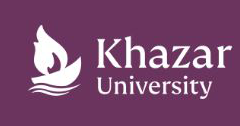Document Type
Original Study
Subject Areas
Education
Keywords
Pedagogy, in-class, professional training, affective, cognitive, online educators.
Abstract
Swenson (2007) observed that “in the space of one brief decade, the internet has changed our world and most of us with it”. He remarked further that our ways of doing things are different now as a result of digital revolution in education. To be successful therefore in a 21st century world, in which knowledge is generated at an ever increasing pace, requires that learning be made an ongoing process of skill development and knowledge creation. Online education programs are a reflection of this new world as they offer education without borders (Levine & Sun, 2003). Online education has experienced dramatic expansion while institutions of higher learning continue to increase online course offerings in an effort to satisfy student demand (Capra, 2011). However, Capra submitted further that, while this growth is impressive, it is not without unintended negative consequences. As a result of the increasing import of online education over the years, attempt is made in this paper to examine some of the negative consequences inherent in this innovative form of education which one sees as issues and challenges. The paper also discusses the implications of the identified issues and challenges with strategic suggestions made as to the way forward
How to Cite This Article
OLATUNJI, Michael Olalekan and Olalekan, Michael
(2013)
"Online Education: Issues, Challenges and Implications,"
Khazar Journal of Humanities and Social Sciences: Vol. 16:
Iss.
3, Article 5.
DOI: DOI:10.578/2223-2621.2013.16.3.53
Available at:
https://kjhss.khazar.org/journal/vol16/iss3/5
Publication Date
2013

